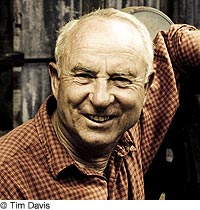 YVON CHOUINARD, The United States
YVON CHOUINARD, The United StatesYvon Chouinard is founder and owner of Patagonia, Inc., based in Ventura, California. He began in business by designing, manufacturing, and distributing rock climbing equipment in the late 1950’s. His tinkering led to an improved ice axe that facilitated the French ice climbing technique and is the basis for modern ice axe design. In 1964 he produced his first mail order catalog, a one page mimeographed sheet containing advice not to expect fast delivery during climbing season. Business grew slowly until 1972 when Yvon added rugby shirts to his catalog and his clothing business took off.
In the late 1980’s, Patagonia’s success was such that Yvon considered early retirement. In some ways he would have preferred to disappear into the South Pacific with his fly rod and surfboard. However, he decided to continue directing Patagonia’s course, in part to use the company to inspire and implement solutions to the environmental crisis. As part of this goal, Patagonia instituted an Earth Tax, pledging 1% of sales to the preservation and restoration of the natural environment. In 2001, Yvon, along with Craig Mathews, owner of West Yellowstone’s Blue Ribbon Flies, started One Percent For The Planet, an alliance of businesses that contribute at least 1 percent of their net annual sales to groups on a list of researched and approved environmental organizations. Yvon spends much of his time in the outdoors and serving on the boards of numerous environmental groups.
“I work every day of my life. My job is to be the ‘outside’ man, studying lifestyles around the world, coming up with ideas for new products, new market trends, seeing that Patagonia stays relevant in a rapidly changing world.”
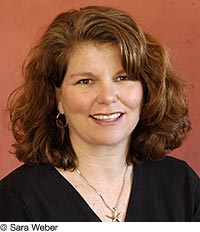 JILL DUMAIN, The United States
JILL DUMAIN, The United StatesJill Dumain attended the University of California at Davis and majored in Textiles and Clothing. The studies at Davis included textile science, marketing and production courses. Upon graduation, she began working in the Fabric Laboratory at Patagonia testing and analyzing the technical fabrics in the line. Two years later, she moved into Fabric Development to work on the development of Patagonia's natural fiber fabrics. This is the position that led into the environmental emphasis of her job especially the organic cotton project which she has continued to lead since 1994.
From 1997-2003, she held the position Director of Fabric Development overseeing all material development for the company. She was promoted to Director of Environmental Analysis in 2003 and helped lead the development of the Common Threads Garment Recycling Program and The Footprint Chronicles website. Jill was elected as Chair of the Board of the Organic Exchange in September 2006 and continues this post. Throughout her tenure at Patagonia, she has traveled extensively through Asia, Europe and the United States visiting fabric manufacturers and interfacing with other companies committed to environmental responsibility.
“We are venturing into a new area for corporations…Towards a New Transparency. There are distinct reasons why transparency has become important and what it means to our work. It isn’t always an easy first step but once it has begun, there is a certain freedom in being transparent. I don’t know that a company can really achieve full transparency but as the questions keep coming, we will know that this is an evolutionary process. The journey towards a new transparency is a never-ending path, I hope. Next year it will look very different than now, of this, I am convinced.”
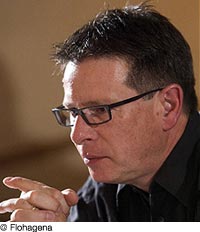 PETER WAEBER, Switzerland
PETER WAEBER, SwitzerlandPeter Waeber is the CEO of bluesign technologies ag, the inventor of the comprehensively innovative bluesign® standard. Peter brings exceptional expertise about the proactive, reliable and scientific tools that are now at the disposal of the entire textile industry for assessing and controlling the quality and safety of the end products on the basis of the accurate analysis of every detailed step of the entire value chain--from the production and use of raw materials, yarns, dyes, additives, finishes, textile and end-product manufacturing, through to brand companies’, retailers’, and consumers’ impact and beyond.
"At some point when climbing some stairs we may realize: unhealthy nutrition and a lack of exercise make our life miserable, and say to ourselves, 'Only a complete fitness programme can help now to strengthen my body and soul.' The same applies to the textile industry. Here we also need a fitness programme to be able to make fit and healthy products. Such products need fewer resources, cause less waste, reduce CO2 emissions, pose no health hazards, and due to good end-of-pipe solutions have no negative impact on the environment. For this purpose bluesign technologies ag has developed various intelligent supply chain management tools."
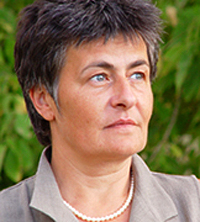 SIMONETTA CARBONARO, Italy/Germany
SIMONETTA CARBONARO, Italy/Germany
Simonetta Carbonaro is an expert in consumer psychology, strategic marketing and design management. She carries out research in the area of consumer ethos and behavior, forecasting the directions consumer culture is moving in.
Since 2002 she has been a professor in Design Management and Humanistic Marketing at The Swedish School of Textiles at the University of Borås, where she directs The Design of Prosperity, an action oriented transdisciplinary center focused on socio-cultural forces influencing customer behavior, driving societal changes and fostering new lifestyles. She has been member of the research committees of the postgraduate design school Domus Academy in Milan for ten years.
She is a partner of the research-pool and member of the advisory board of the Swiss Gottlieb Duttweiler Institute for marketing and social sciences. For the last fifteen years, Carbonaro has been working as senior strategic advisor for main retail companies. She is a partner at REALISE, a business consulting firm based in Germany, where she is actively involved in values branding, strategic design and innovation management.
“People today call for much more than just ecological, economic and socially sustainable products. They are looking for products that also can deliver a message for the ecology of their mind and of their spirit. Products that express their ethos through a powerful aesthetic impact. That means products that can reconcile us with a future we thought they had lost.”
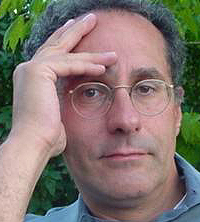 CHRISTIAN VOTAVA, Germany
CHRISTIAN VOTAVA, Germany
Christian Votava is an expert in strategy, value-added marketing and organisational efficiency and is developing new marketing and market research methodologies for saturated markets. He holds a doctorate in chemistry and an MBA. He was active for more than 10 years in leading marketing & sales positions in Europe and USA. He was a consultant at companies like A.T. Kearney or Logika AG. Today he is a Partner at REALISE, where he empowers financial and consumer goods companies to operate safely and successfully in highly competitive markets. In addition to project work, he assists business managers and boards in their strategic and tactical decisions.
“One can only be able to locate the key to appropriate, sustainable actions in the interplay of three systems (the social system, the personal system and the environmental system) which – together - have the capability of rescuing humanity from a nearly pre-ordained extinction.”
 JOSEPHINE RYDBERGER-DUMONT, Sweden
JOSEPHINE RYDBERGER-DUMONT, Sweden
Josephine is a passionate and highly skilled creative brand and business leader. She has had 24 years experience in various leadership roles in the fast growing IKEA group, including as Chief Executive of IKEA of Sweden. Between 2000 and 2007 she led the vision of the IKEA home furnishing offer taking responsibility for range and product development, purchasing and supply. She was instrumental in developing IKEA's fast home furnishing growth and brand leadership globally.
“My passion is mission-focused business innovation, communication, and people growth and development. I am committed to self-development and to engage with others to build our common future.”
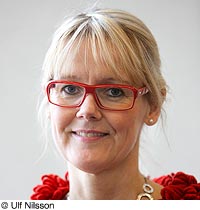 KARIN M. EKSTRÖM, Sweden
KARIN M. EKSTRÖM, SwedenKarin M. Ekström is Professor in Marketing at the School of Business and Informatics, University of Borås, Sweden. She is initiator and former director of the Centre for Consumer Science (CFK), an interdisciplinary consumer research centre. Her research concerns family consumption, consumer socialization, collecting, design and the meaning(s) of consumption. She has edited several books and published in journals such as Academy of Marketing Science Review, Journal of Consumer Behaviour, Journal of Consumer Research, Journal of Marketing Management and Research in Consumer Behavior.
“A consumer's perspective is necessary for understanding consumption patterns. In order to increase sustainable consumption, the advantages of such a choice must be communicated. Environmental innovations need also to be superior to existing products, not just be perceived as complements or as being less attractive.”
 TAMARA ALBU, The United States
TAMARA ALBU, The United StatesBorn in Bucharest, Romania, Tamara Albu’s journey to the fashion world began with her studies in Decorative Arts at Academy of Fine Arts in Bucharest, Romania. She earned her M.F.A. in Fashion Design and Illustration in 1976. In 1980, after several years working as a fashion designer and illustrator, she decided to move to New York.
While her love for designing and painting was burning strong, Tamara’s interests took an additional dimension: teaching paired with her professional activity. Tamara lives and works in New York City. While active as an artist, exhibiting and publishing her art work, she contributes to fashion companies such as Hue, Christian Dior NY, Donna Karan and DKNY, Calvin Klein Hosiery, etc.
She is currently teaching Fashion Illustration and Fashion Portfolio, and is the Director of the A.A.S. Fashion Design Program at Parsons the New School for Design.
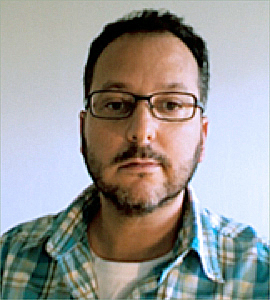 DAVID GOLDSMITH, The United States/Sweden
DAVID GOLDSMITH, The United States/SwedenDavid is a textile designer and educator. His design clients range from mass-market retailers to unique small enterprises, and experience as an educator is broad: teaching textiles in the fashion department of Parsons The New School for Design, as well as teaching content-centered English as a second language in many locations around the world.
Prior to his work in design and education, David was the director of the contemporary art gallery Metro Pictures. His action-based doctoral research at the Swedish School of Textiles is focused on the role of art, artisanship, and education in building sustainable habits in textile production and use. David holds a BFA from Parsons School of Design, a Teacher's Certificate from the New School, and a Masters in Applied Textile Management from the Swedish School of Textiles at the University of Borås.
“Design students today are extremely anxious about the future of our world and eager to make design decisions based on re-sustainable practices and more reasonable consumer choices. My current focus is to embrace that desire and build non-mass market artisanal alternatives that enable designers to be completely involved in the entire process of production.”
| For more information please contact: | Simonetta.Carbonaro@hb.se | David.Goldsmith@hb.se | www.hb.se |